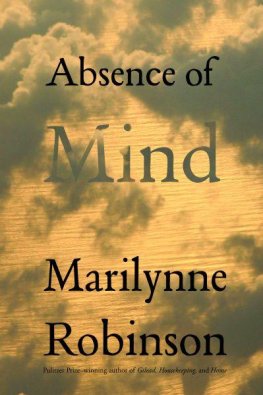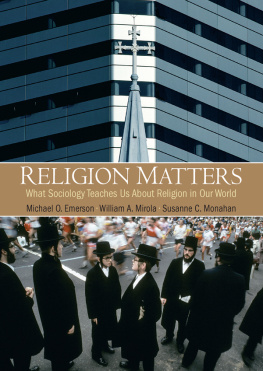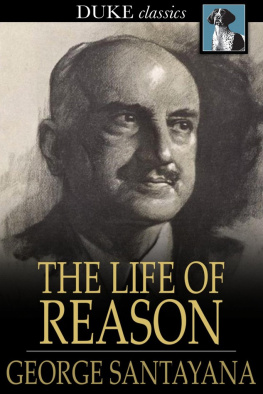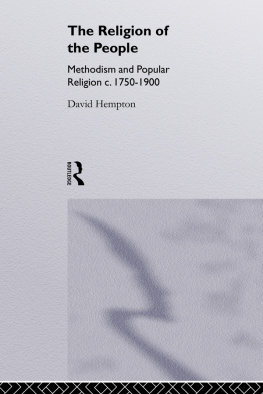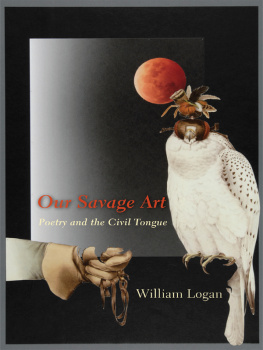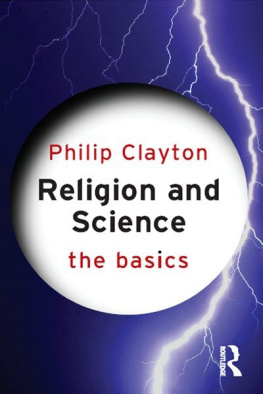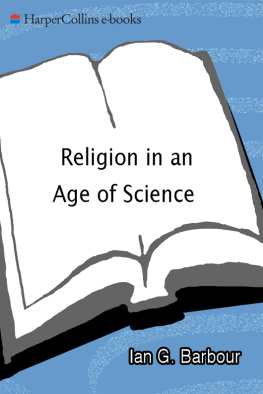Santayana - Interpretations of Poetry and Religion
Here you can read online Santayana - Interpretations of Poetry and Religion full text of the book (entire story) in english for free. Download pdf and epub, get meaning, cover and reviews about this ebook. City: New York;NY, year: 2011, publisher: Barnes & Noble Digital Library, genre: Religion. Description of the work, (preface) as well as reviews are available. Best literature library LitArk.com created for fans of good reading and offers a wide selection of genres:
Romance novel
Science fiction
Adventure
Detective
Science
History
Home and family
Prose
Art
Politics
Computer
Non-fiction
Religion
Business
Children
Humor
Choose a favorite category and find really read worthwhile books. Enjoy immersion in the world of imagination, feel the emotions of the characters or learn something new for yourself, make an fascinating discovery.
Interpretations of Poetry and Religion: summary, description and annotation
We offer to read an annotation, description, summary or preface (depends on what the author of the book "Interpretations of Poetry and Religion" wrote himself). If you haven't found the necessary information about the book — write in the comments, we will try to find it.
Santayana: author's other books
Who wrote Interpretations of Poetry and Religion? Find out the surname, the name of the author of the book and a list of all author's works by series.
Interpretations of Poetry and Religion — read online for free the complete book (whole text) full work
Below is the text of the book, divided by pages. System saving the place of the last page read, allows you to conveniently read the book "Interpretations of Poetry and Religion" online for free, without having to search again every time where you left off. Put a bookmark, and you can go to the page where you finished reading at any time.
Font size:
Interval:
Bookmark:
GEORGE SANTAYANA

This 2011 edition published by Barnes & Noble, Inc.
All rights reserved. No part of this publication may be reproduced, stored in a retrieval system, or transmitted, in any form or by any means, electronic, mechanical, photocopying, recording, or otherwise, without prior written permission from the publisher.
Barnes & Noble, Inc.
122 Fifth Avenue
New York, NY 10011
ISBN: 978-1-4114-5054-7
PREFACE
T HE following volume is composed of a number of papers written at various times and already partially printed; they are now revised and gathered together in the hope that they may lead the reader, from somewhat different points of approach, to a single idea. This idea is that religion and poetry are identical in essence, and differ merely in the way in which they are attached to practical affairs. Poetry is called religion when it intervenes in life, and religion, when it merely supervenes upon life, is seen to be nothing but poetry.
It would naturally follow from this conception that religious doctrines would do well to withdraw their pretension to be dealing with matters of fact. That pretension is not only the source of the conflicts of religion with science and of the vain and bitter controversies of sects; it is also the cause of the impurity and incoherence of religion in the soul, when it seeks its sanctions in the sphere of reality, and forgets that its proper concern is to express the ideal. For the dignity of religion, like that of poetry and of every moral ideal, lies precisely in its ideal adequacy, in its fit rendering of the meanings and values of life, in its anticipation of perfection; so that the excellence of religion is due to an idealization of experience which, while making religion noble if treated as poetry, makes it necessarily false if treated as science. Its function is rather to draw from reality materials for an image of that ideal to which reality ought to conform, and to make us citizens, by anticipation, in the world we crave.
It also follows from our general conception that poetry has a universal and a moral function. Its rudimentary essays in the region of fancy and pleasant sound, as well as its idealization of episodes in human existence, are only partial exercises in an art that has all time and all experience for its natural subject-matter and all the possibilities of being for its ultimate theme. As religion is deflected from its course when it is confused with a record of facts or of natural laws, so poetry is arrested in its development if it remains an un-meaning play of fancy without relevance to the ideals and purposes of life. In that relevance lies its highest power. As its elementary pleasantness comes from its response to the demands of the ear, so its deepest beauty comes from its response to the ultimate demands of the soul.
This theory can hardly hope for much commendation either from the apologists of theology or from its critics. The mass of mankind is divided into two classes, the Sancho Pansas who have a sense for reality, but no ideals, and the Don Quixotes with a sense for ideals, but mad. The expedient of recognising facts as facts and accepting ideals as ideals,and this is all we propose,although apparently simple enough, seems to elude the normal human power of discrimination. If, therefore, the champion of any orthodoxy should be offended at our conception, which would reduce his artful cosmos to an allegory, all that could be said to mitigate his displeasure would be that our view is even less favourable to his opponents than to himself.
The liberal school that attempts to fortify religion by minimizing its expression, both theoretic and devotional, seems from this point of view to be merely impoverishing religious symbols and vulgarising religious aims; it subtracts from faith that imagination by which faith becomes an interpretation and idealization of human life, and retains only a stark and superfluous principle of superstition. For meagre and abstract as may be the content of such a religion, it contains all the venom of absolute pretensions; it is no less cursed than the more developed systems with a controversial unrest and with a consequent undertone of constraint and suspicion. It tortures itself with the same circular proofs in its mistaken ambition to enter the plane of vulgar reality and escape its native element of ideas. It casts a greater blight than would a civilized orthodoxy on any joyous freedom of thought, For the respect exacted by an establishment is limited and external, and not greater than its traditional forms probably deserve, as normal expressions of human feeling and apt symbols of moral truth. A reasonable deference once shown to authority, the mind remains, under such an establishment, inwardly and happily free; the conscience is not intimidated, the imagination is not tied up. But the preoccupations of a hungry and abstract fanaticism poison the liberty nominally allowed, bias all vision, and turn philosophy itself, which should be the purest of delights and consolations, into an obsession and a burden to the soul. In such a spectral form religious illusion does not cease to be illusion. Mythology cannot become science by being reduced in bulk, but it may cease, as a mythology, to be worth having.
On the other hand, the positivistic school of criticism would seem, if our theory is right, to hare overlooked in its programme the highest functions of human nature. The environing world can justify itself to the mind only by the free life which it fosters there. All observation is observation of brute fact, all discipline is mere repression, until these facts digested and this discipline embodied in humane impulses become the starting-point for a creative movement of the imagination, the firm basis for ideal constructions in society, religion and art. Only as conditions of these human activities can the facts of nature and history become morally intelligible or practically important. In themselves they are trivial incidents, gossip of the Fates, cacklings of their inexhaustible garrulity. To regard the function of man as accomplished when these chance happenings have been recorded by him or contributed to by his impulsive action is to ignore his reason, his privilege,shared for the rest with every living creature,of using Nature as food and substance for his own life. This human life is not merely animal and passionate. The best and keenest part of it consists in that very gift of creation and government which, together with all the transcendental functions of his own mind, man has significantly attributed to God as to his highest ideal. Not to see in this rational activity the purpose and standard of all life is to have left human nature half unread. It is to look to the removal of certain incidental obstacles in the work of reason as to the solution of its positive tasks. In comparison with such apathetic naturalism, all the errors and follies of religion are worthy of indulgent sympathy, since they represent an effort, however misguided, to interpret and to use the materials of experience for moral ends, and to measure the value of reality by its relation to the ideal.
The moral function of the imagination and the poetic nature of religion form, then, theme of the following pages. It may not be amiss to announce it here, as the rather miscellaneous subjects of these essays might at first sight obscure the common import of them all.
I
UNDERSTANDING, IMAGINATION, AND MYSTICISM
W HEN we consider the situation of the human mind in Nature, its limited plasticity and few channels of communication with the outer world, we need not wonder that we grope for light, or that we find incoherence and instability in human systems of ideas. The wonder rather is that we have done so well, that in the chaos of sensations and passions that fills the mind, we have found any leisure for self-concentration and reflection, and have succeeded in gathering even a light harvest of experience from our distracted labours. Our occasional madness is less wonderful than our occasional sanity. Relapses into dreams are to be expected in a being whose brief existence is so like a dream; but who could have been sure of this sturdy and indomitable perseverance in the work of reason in spite of all checks and discouragements?
Font size:
Interval:
Bookmark:
Similar books «Interpretations of Poetry and Religion»
Look at similar books to Interpretations of Poetry and Religion. We have selected literature similar in name and meaning in the hope of providing readers with more options to find new, interesting, not yet read works.
Discussion, reviews of the book Interpretations of Poetry and Religion and just readers' own opinions. Leave your comments, write what you think about the work, its meaning or the main characters. Specify what exactly you liked and what you didn't like, and why you think so.


![Santayana - The life of reason, [or], the phases of human progress](/uploads/posts/book/233706/thumbs/santayana-the-life-of-reason-or-the-phases-of.jpg)
